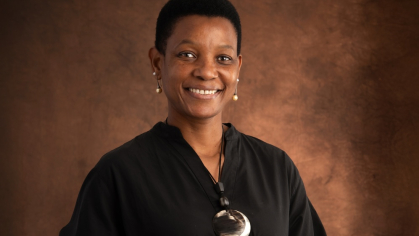Marion Thompson Wright lecture series
On Saturday, February 16, 2008, Gov. Jon S. Corzine will welcome guests attending one of New Jersey’s oldest and most highly esteemed Black History Month events, the Marion Thompson Wright Lecture Series. This year’s MTW Lecture Series marks its 28th anniversary by examining Private Grief and Public Mourning in African American Life and History. Other dignitaries expected to attend include Secretary of State Nina M. Wells and Mayor Cory Booker.
The conference will commence at 9:30 a.m. at the Paul Robeson Campus Center on the Newark campus of Rutgers University, 350 Dr. Martin Luther King, Jr. Boulevard.
The one-day program will acknowledge the deep sadness and enduring commemorative efforts associated with post-World War II African American history, especially as that history relates to the 1968 death of Dr. Martin Luther King, Jr. and the loss of so many others imperiled during the years of the modern Civil Rights Movement. The fortieth anniversary of Dr. King’s death in 1968 affords historians an opportunity to shed light on how that singularly tragic event is connected to a larger narrative of the emotional grief and commemoration of the Movement and those who made a sacrifice in its behalf.
The keynote Marion Thompson Wright Lecture will be given by Dr. Bernice Johnson Reagon, Professor Emerita of history at American University and a scholar and artist in African American cultural history and music. Afternoon speakers include Professor John Vlach, George Washington University, Washington, DC; Professor Kim Lacy Rogers, Dickinson College, Carlisle, PA; and Dr. Juanita Moore, president and CEO, the Charles H. Wright Museum of African American History, Detroit, MI. Acclaimed violinist, Regina Carter, will perform the Negro National Anthem, “Lift Ev’ry Voice and Sing” at the opening of the conference. The afternoon presentations will be followed by a reception in the Paul Robeson Gallery, featuring entertainment by the Bradford Hayes jazz trio.
Since 1981, the Marion Thompson Wright Lecture Series has drawn thousands of people to the Rutgers-Newark campus in observance of Black History Month. Named in honor of Dr. Marion Thompson Wright, a pioneer in African American historiography and the study of race relations in New Jersey, the conference has focused on themes deemed particularly relevant for understanding the African experience throughout the Diaspora.
MTW is a community ritual in public scholarship and has attracted some of the nation’s foremost scholars and humanists who are experts in the field of African and African American history and culture. One of the oldest and most prestigious events of its kinds, the MTW lecture series offers a forum for scholars and non-academicians to share their thoughts and exchange ideas and sustains wide public interest in history, the humanities and life-long learning.
“It’s the perfect forum for scholars and the public at large to come together to dignify what has become one of our community’s most important rituals,” said Clement Alexander Price, co-founder of the lecture series and director of the Rutgers Institute on Ethnicity, Culture and The Modern Experience (IECME), an MTW series sponsor.
“The series takes in-depth, thought-provoking looks at issues with a deep impact on the past, present and future of New Jersey and its African-American population in particular and Americans in general,” said Giles R. Wright of the New Jersey Historical Commission and co-founder of the series.
The annual conference was named for East Orange native Dr. Marion Thompson Wright, a pioneer in African American historiography and race relations in New Jersey, who served for many years on the faculty of Howard University. An honors graduate of Newark’s Barringer High School and Columbia University’s Teachers College Class of 1938, she was the first professionally trained woman historian in the United States.
The program is being mounted in recognition of the Institute’s 10th anniversary as an important Rutgers University resource for public scholarship and civic discourse in greater Newark and is sponsored by the Institute; the Federated Department of History, Rutgers-Newark and the New Jersey Institute of Technology; and the New Jersey Historical Commission/Department of State. The program also receives funding support from the New Jersey Council for the Humanities


